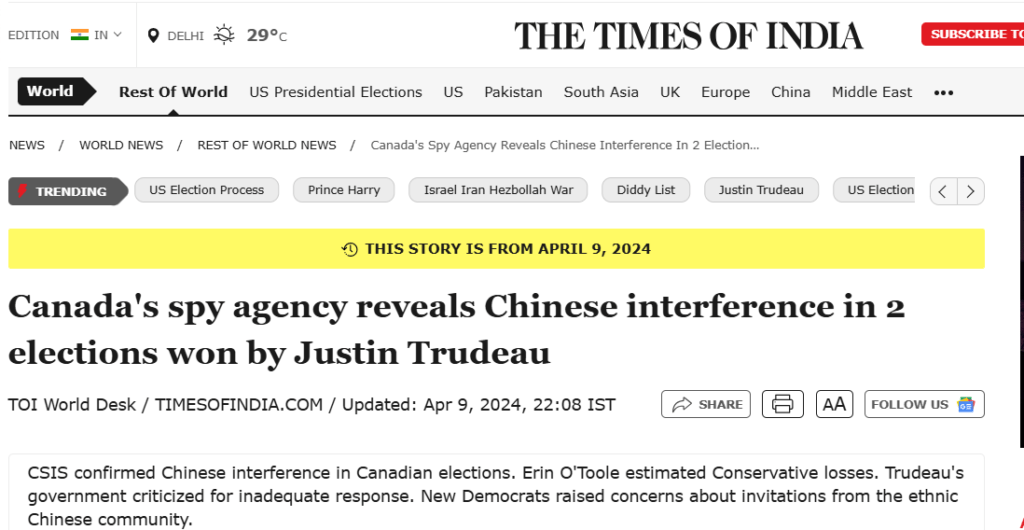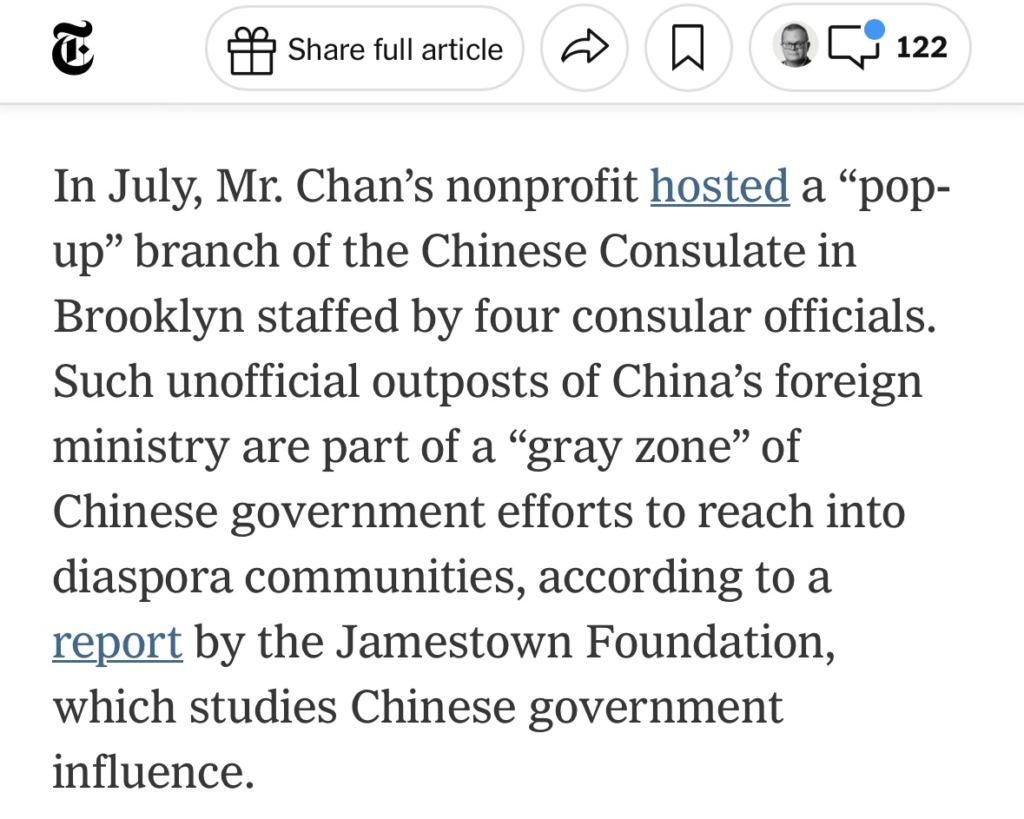AI Generated Summary
- According to research led by Sze-Fung Lee and Marcus Kolga, with contributions from the Toronto-based Digital Public Square, Chinese agents and their proxies have intensified efforts to intimidate and control members of Canada’s diaspora communities.
- This repression is not only a violation of human rights but a direct challenge to Canada’s sovereignty and democratic values.
- As a groundbreaking report by leading independent researchers highlights, Beijing’s repression networks have evolved into a sophisticated and dangerous apparatus operating on Canadian soil.
Canada stands at a crossroads in its approach to safeguarding democracy and protecting its diverse communities from foreign interference. As a groundbreaking report by leading independent researchers highlights, Beijing’s repression networks have evolved into a sophisticated and dangerous apparatus operating on Canadian soil. The report’s chilling revelations demand immediate and coordinated action.
According to research led by Sze-Fung Lee and Marcus Kolga, with contributions from the Toronto-based Digital Public Square, Chinese agents and their proxies have intensified efforts to intimidate and control members of Canada’s diaspora communities. These communities, which include people of Chinese, Hong Kong, Taiwanese, Tibetan, Uyghur, and Falun Gong backgrounds, have become prime targets for threats, coercion, and disinformation campaigns orchestrated by Beijing. The numbers speak volumes: 85% of surveyed diaspora leaders reported direct threats, and nearly half experience harassment at least monthly.

This repression is not only a violation of human rights but a direct challenge to Canada’s sovereignty and democratic values. Beijing’s tactics range from political pressure and financial incentives to cyber espionage, media disinformation, and even physical threats. The report details how diaspora community leaders are left fending for themselves, often dismissed or ignored by Canada’s underperforming enforcement and intelligence agencies.
The ramifications of inaction are stark. Beijing’s influence campaigns have already disrupted Canada’s political landscape. Conservative Members of Parliament Kenny Chiu and Michael Chong faced cyberattacks and disinformation campaigns orchestrated by the Chinese Communist Party (CCP). These actions exemplify how foreign interference undermines free elections and suppresses dissenting voices. Yet, despite the exposure of these tactics, Canada’s response has been lackluster.

The United States offers a stark contrast. Prosecutions in New York and Massachusetts have targeted Beijing’s United Front networks, bringing perpetrators to justice. In Canada, however, not a single prosecution has occurred. The lack of accountability emboldens Beijing’s agents and leaves vulnerable communities unprotected.
This is where the proposed “kill chain” framework outlined by Lee, Kolga, and their collaborators becomes essential. By systematically identifying, tracking, and neutralizing threats at every stage, this approach could provide the comprehensive response Canada so urgently needs. Civil society organizations and independent researchers, like those behind this report, are already mapping Beijing’s networks and tactics. Their expertise must be leveraged by government agencies to close enforcement gaps and prosecute offenders.
Canada-China
— Natasha Fatah (@NatashaFatah) February 26, 2023
There are multiple reports of Beijing interfering in Canada's 2019 and 2021 federal elections@RmdKenny Chiu is one of the former Conservative MPs who was allegedly targeted by Chinese misinformation & interference
We ask him what's at stake for Canada's security pic.twitter.com/Ks8qQKii4U
However, Canada cannot act alone. Multilateral cooperation among democracies is crucial. Coordinated sanctions through alliances like the G7 and NATO can amplify Canada’s response and deter Beijing’s interference. At home, robust foreign interference laws must be paired with enforcement that prioritizes protecting vulnerable communities.
Equally important is addressing the digital battleground. Beijing leverages platforms like WeChat, Douyin, and Chinese-language media outlets to spread propaganda and surveil critics. Canadian regulators must hold these platforms accountable for enabling disinformation and develop tools to counter foreign interference online. At the same time, media literacy campaigns can empower communities to identify and resist such tactics.
🇨🇦🇨🇳 Investigative Journalist Sam Cooper EXPOSES Chinese Communist Party Corruption in Canada | Blendr Report EP86
— BlendrNews (@BlendrNews) December 10, 2024
Topics of Discussion:
– Foreign interference in Canadian institutions
– The difference between Chinese, Iranian, Russian, Khalistani, and Indian interference
-… pic.twitter.com/UjHLNztitc
The stakes are high. Failure to act risks not only the safety of individuals targeted by Beijing but the integrity of Canada’s democratic institutions. As Lee aptly noted, the current legal framework is insufficient to counter Beijing’s hybrid warfare. Canada must match the resilience of its diaspora communities with an equally determined commitment to protect them.
This is a critical moment. Canada has the tools, knowledge, and partnerships to push back against Beijing’s aggression. What remains to be seen is whether our leaders will summon the political will to act decisively. The future of Canada’s democracy—and the safety of its most vulnerable communities—depends on it.
The opinions expressed in this article are those of the author. They do not purport to reflect the opinions or views of Khalsa Vox or its members.




